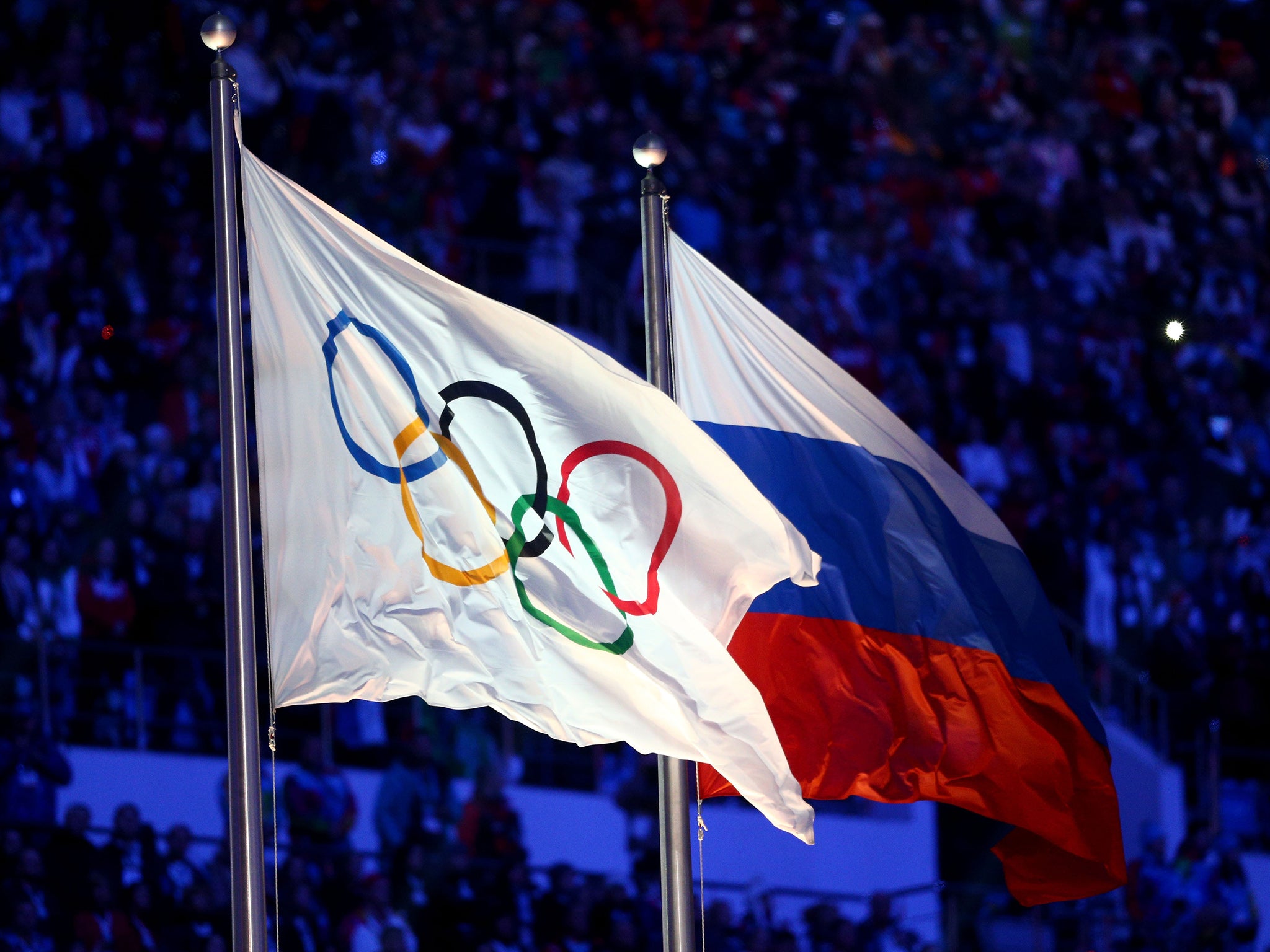The Independent's journalism is supported by our readers. When you purchase through links on our site, we may earn commission.
Russian doping scandal: Urine sample switches behind Sochi Winter Olympics success, claims former lab director
Grigory Rodchenkov admitted to his involvement in a state-sponsored doping programme which supplied performance-enhancing substances to at least 15 Russian medal winners

Your support helps us to tell the story
From reproductive rights to climate change to Big Tech, The Independent is on the ground when the story is developing. Whether it's investigating the financials of Elon Musk's pro-Trump PAC or producing our latest documentary, 'The A Word', which shines a light on the American women fighting for reproductive rights, we know how important it is to parse out the facts from the messaging.
At such a critical moment in US history, we need reporters on the ground. Your donation allows us to keep sending journalists to speak to both sides of the story.
The Independent is trusted by Americans across the entire political spectrum. And unlike many other quality news outlets, we choose not to lock Americans out of our reporting and analysis with paywalls. We believe quality journalism should be available to everyone, paid for by those who can afford it.
Your support makes all the difference.A former director of Russia’s anti-doping laboratory has revealed his role in an extraordinary state-sponsored doping programme prior to and during the 2014 Winter Olympics in Sochi.
Grigory Rodchenkov, whose explosive claims were published in The New York Times, admitted to his involvement in a programme which supplied performance-enhancing substances to at least 15 Russian medal winners and covertly switched urine samples under the cover of night.
The former laboratory director claimed to have mixed cocktails of three banned substances (metenolone, trenbolone and oxandrolone) with alcohol and provided these to dozens of Russian athletes with the intention of helping them cheat.
Rodchenkov also detailed how anti-doping agents and members of Russia’s intelligence service, the FSB, conspired to replace dirty samples with clean urine, passing bottles through a hole in the wall of a specially-created ‘shadow laboratory’.
Alexander Zubkov, winner of two bobsleigh golds at the Sochi Games; Alexander Legkov, who won gold and silver in cross-country skiing events and Alexander Tretiakov, who claimed gold in the skeleton competition were each named among the athletes who benefited from Rodchenkov’s assistance.
No Russian athletes were caught doping at Sochi and the country topped the final medals table with a total of 33, five more than the second-placed United States. Rodchenkov claims that as many as 100 dirty samples were removed.
The International Olympic Committee (IOC) has labelled the allegations "very detailed and very worrying" and called on the World Anti-Doping Agency (Wada) to launch an immediate investigation.
Russia’s minister of sport Vitaly Mutko, however, has dismissed the allegations, claiming them to be “a continuation of the information attack on Russian sport”.
“The system of organisation of the Olympic Games was completely transparent,” he told news agency Tass. “Everything was under the control of international experts, from the collection of samples to their analysis.”
Among Rodchenkov’s most extraordinary claims is that several weeks prior to the Sochi, a man believed to be an FSB agent presented him with a previously-sealed urine collection bottle that was supposedly tamper-proof, only to then find that it had been opened.
The ‘shadow laboratory’, labelled room 124, was subsequently set up at Sochi’s official testing site. Sealed samples of dirty urine would be passed into room 124, taken away and - within a matter of hours - unlocked, ready to be emptied and filled with clean urine.
Rodchenkov, who became director of Russia’s anti-doping laboratory in 2005, was forced to resign from his position by officials last November upon the publication of Wada’s report into ‘state-sponsored doping’ among the country's track and field athletes.
Having fled to Los Angeles in fear of his safety, two of Rodchenkov’s colleagues unexpectedly died in February of this year.
The allegations came as Wada’s board met to review developments in Russia’s anti-doping practices since last November’s damning report, which led to a full and indefinite ban from world athletics.
The International Association of Athletics Federations (IAAF) will meet next month to decide whether the ban will extend into this year’s Summer Olympics in Rio de Janiero.
Join our commenting forum
Join thought-provoking conversations, follow other Independent readers and see their replies
Comments